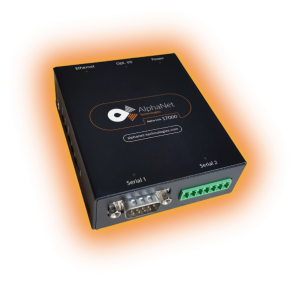Introduction
Hey there! Have you ever wondered about the differences between a Modbus gateway and a router? Well, you’re in the right place. This article is going to delve deep into these devices, explaining what they are, their functions, applications, and of course, how they compare. Ready? Let’s get started!
What is Modbus?
Modbus Protocol
First off, let’s talk about Modbus. Modbus is a communication protocol developed in 1979 for industrial electronic devices. It’s like the language that devices use to communicate with each other. Pretty cool, right?
Modbus in Industrial Automation
In the world of industrial automation, Modbus holds a significant place. It’s used to connect a supervisory computer with a remote terminal unit in the SCADA (Supervisory Control and Data Acquisition) system. Can you imagine managing a huge industrial process without efficient communication? Neither can I!
What is a Modbus Gateway?
Functions of a Modbus Gateway
Now, onto Modbus gateways. A Modbus gateway acts as an interface between the Modbus protocol and other communication protocols. In essence, it’s like a translator helping different devices to understand each other.
Applications of Modbus Gateways
Modbus gateways are extensively used in industrial automation processes where devices using different protocols need to communicate. They make the automation process more efficient and reliable.
What is a Router?
Functions of a Router
Shifting gears to routers now. A router is a device that routes data packets between computer networks. It’s like a postman delivering letters (data) to the correct addresses (devices on a network).
Applications of Routers
Routers are omnipresent in today’s connected world – homes, offices, factories, you name it! They provide the critical function of connecting different networks and enabling data exchange.
Modbus Gateway vs Router: The Comparisons
Performance in Industrial Networks
When it comes to industrial networks, Modbus gateways and routers have different performance characteristics. A Modbus gateway is specialized for translating Modbus protocol into other protocols, making it crucial for interoperability in industrial automation. On the other hand, a router mainly directs data traffic efficiently between different networks.
Cost Differences
Generally, a Modbus gateway might be more expensive than a regular router due to its specialized functionality. But remember, it’s not just about the cost. It’s about choosing the right tool for the right job.
Use Cases: When to use Modbus Gateway and Router
A Modbus gateway is your go-to device when you need to interface Modbus protocol with other communication protocols in an industrial setup. A router is best suited for routing data between different networks, irrespective of the protocol.
Conclusion
In essence, Modbus gateways and routers each serve unique roles in networking and industrial automation. While they share some similarities, their differences are significant when it comes to application and function. Now, wouldn’t you agree that both are essential in their own unique ways?
FAQs
1. Can a router replace a Modbus gateway? No, a router cannot replace a Modbus gateway as they have different functions.
2. Why is Modbus still widely used in industries? Modbus is robust, easy to implement, and it requires minimal hardware to establish communication, making it popular in industries.
3. Can a Modbus gateway connect to any network? Yes, provided the network supports the protocols that the Modbus gateway can translate.
4. What’s a key benefit of using a router in a network? A router efficiently directs data traffic, avoiding data congestion and ensuring smooth network operation.
5. What makes a Modbus gateway crucial in industrial automation? A Modbus gateway enables communication between devices using Modbus and those using other protocols, enhancing interoperability in industrial automation processes.


